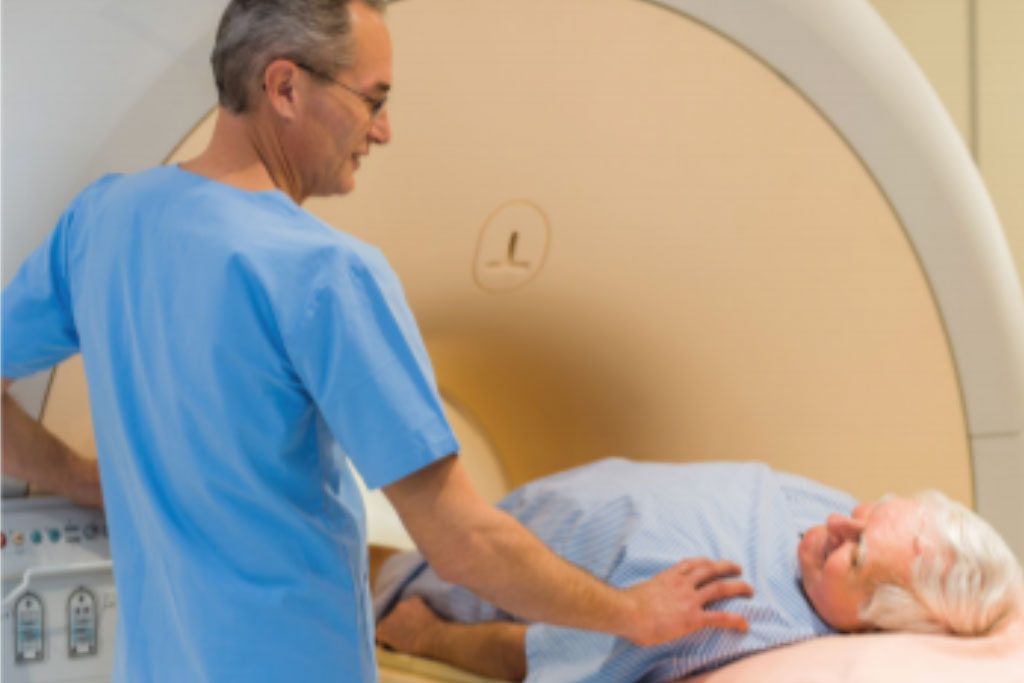
Important Things to Know About Prostate MRI
Doctors use magnetic resonance imaging (MRI) of the prostate to learn about any abnormalities that a patient may have in the prostate area. MRI can also be used to detect disease that returns in patients who have undergone a prior prostatectomy. MRI uses a safe magnetic field and radio waves to create medical images.
MRI scans of the prostate take about 30 – 45 minutes and at MetroWest MRI we do not require the use of an endorectal coil. During the exam you will wear a hospital gown and lie on the table of the MRI scanner. When the scan begins, you will hear a muffled thumping sound that lasts several minutes. After several sets of images are taken, the technologist will give you an injection of contrast through an IV. More MRI pictures are taken after the injection. The technologist will stay in contact with you throughout the exam.
Patient Instructions
Arrive thirty minutes early to complete paperwork. Inform your referring physician if you have ever experienced claustrophobia. If necessary, your doctor can prescribe a mild sedative before your appointment. If you receive medication, bring someone to drive you home.
- Contact us to find out if you have any restrictions on what you can eat and drink before your appointment.
- Take your regular medications prior to your exam.
- Bring your insurance information, as well as any applicable diagnostic films.
- Leave valuables at home. No metal objects can be worn during your scan (such as watches, jewelry, keys, or cell phone).
- You may be asked to wear a hospital gown or your own clothing if there are no metal snaps or zippers.
Notify our staff in advance if you:
- Have implanted devices
- Have any serious health problems
- Have had any surgery within the last eight weeks
- Have ever had surgery on your brain, ears, eyes, or heart
- Have metal in your eyes, or work with metals
- Have a bone or joint replacement or any prosthesis
- Are or may be pregnant or breastfeeding
- Weigh more than 350 pounds
Once your scan is complete, you may resume normal activities and diet. The technologist will give you additional instructions in case of discomfort or delayed reaction due to the contrast agent.
